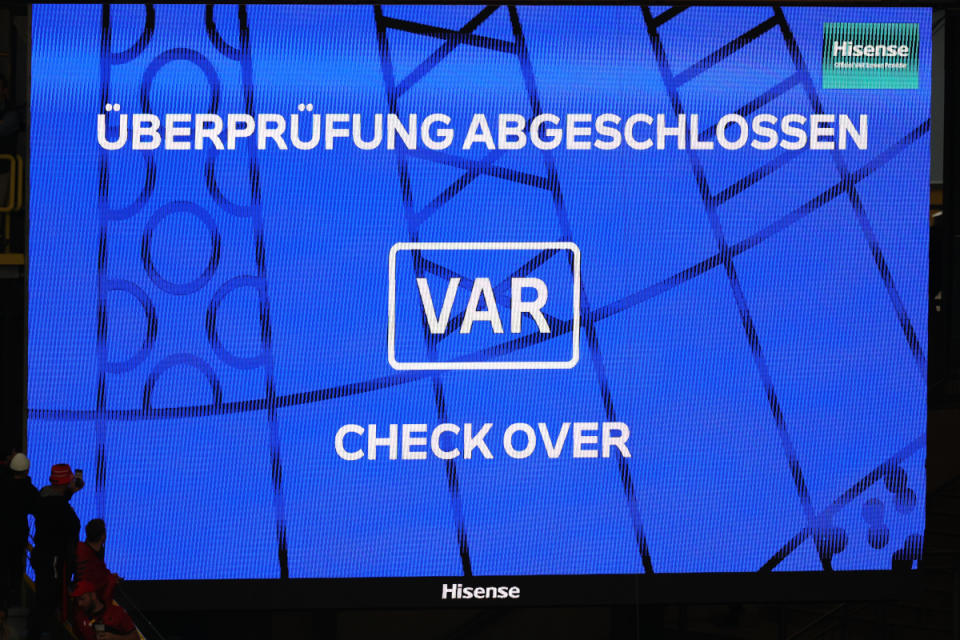How VAR Has Changed the Game: A Look at Its Impact on Serie A

The introduction of the Video Assistant Referee (VAR) system has transformed the landscape of professional football since its inception in recent years. Italy’s top tier football league, Serie A has not been left behind by this new technology. The 2017-2018 season saw VAR being incorporated into Serie A; a move that divided opinions among fans, although it significantly affected the flow of games.
1. Reduction of Refereeing Errors
VAR was introduced mainly to reduce the influence of match outcomes by ensuring that there are no key mistakes from the referees. In a highly competitive league like Serie A, one error could be enough to decide the course of a championship challenge or a team’s struggle against relegation. Referees now have an opportunity to look again at such kind of decisions and officiate better than before because of VAR.
For example, instances of incorrect penalty calls or misidentified fouls have been corrected after VAR reviews, leading to fairer outcomes. This has not only enhanced the integrity of the game but has also been a boon for white label sportsbook platforms that rely on accurate match outcomes for their betting lines. The system has allowed referees to rely on technology for crucial moments, reducing the burden of subjective decision-making.
2. Increased Accountability
The introduction of VAR technology has increased the responsibility of referees. It makes officials work harder when they are aware that the calls could be carefully studied on camera. Currently, referees are expected to explain their every decision instantly. Such close monitoring serves to enhance the quality of officiating in every part of the league.
Moreover, players and coaches have also adjusted their behaviour, recognizing that diving or attempting to deceive officials is less likely to succeed under the watchful eye of VAR. This shift has contributed to a more sportsmanlike atmosphere on the pitch.
3. Game Flow and Disruption
Despite its advantages, VAR has faced criticism for disrupting the game’s flow. Lengthy reviews and pauses for decision-making can break the rhythm of play and frustrate players and fans alike. In Serie A, where tactical battles and fluid gameplay are integral, interruptions can alter the dynamics of a match, as recently highlighted by ex-Italian coach Fabio Capello.
The league has proactively addressed these concerns by implementing stricter protocols for VAR checks, aiming to minimize disruptions while maintaining the integrity of officiating. Nevertheless, the balance between ensuring accuracy and maintaining the natural flow of the game remains a challenging aspect of VAR’s implementation.
4. Influence on Tactical Approaches
The introduction of VAR has affected the way teams tactically approach matches. Coaches and players are currently more cautious about the fact that any of their moves may result in penalties or sending off, thereby making teams change their tactics.
Defenders, for example, are more cautious with their challenges to avoid giving away penalties, while attackers have learned to be thoughtful about drawing fouls, knowing VAR can review their actions. This shift has changed the way teams think about both attacking and defending.
5. Fan Experience and Perception
The impact of VAR extends beyond the pitch; it has also influenced fans’ experiences. While some supporters appreciate the emphasis on accuracy and fairness, others express frustration over the delays and uncertainty surrounding VAR decisions. In Serie A, where passionate fan bases are integral to the culture, managing the emotional rollercoaster accompanying VAR reviews has proven to be a challenge.
Clubs have worked to enhance communication with fans during VAR checks, providing updates through stadium screens and broadcasts. However, the need for clarity and transparency remains paramount, as fans seek to understand the rationale behind decisions that can influence the outcome of matches.
6. Statistical Impact and Trends
Since VAR was introduced, there have been noticeable statistical trends in Serie A. Penalty calls have increased significantly, with many teams benefiting from the system, leading to more goals from penalties. This has shifted how games are played and emphasized the importance of discipline in defence.
Furthermore, the precision of offside calls has led players to be more careful with their runs. This has intensified the competition between forwards and defenders, adding to the excitement of matches.
Summary
The game in Serie A is no longer the same after the integration of VAR. Although it has significantly decreased the referee’s mistakes and promoted accountability, this innovation has not been spared from negative feedback, such as slowing down games and changing how fans view events. As the league continues to adapt to this technology, the challenge remains to strike a balance between accuracy and maintaining the essence of football. It is without question that VAR is here to stay and will impact Serie A and football at large for many years to come.

 Yahoo Sports
Yahoo Sports 
